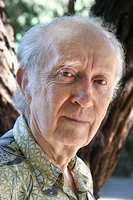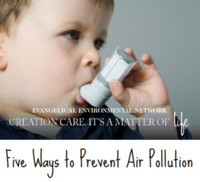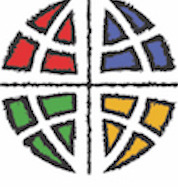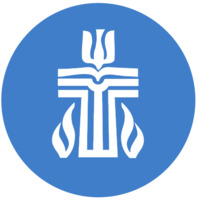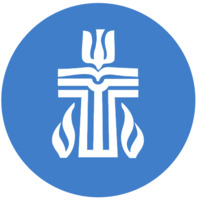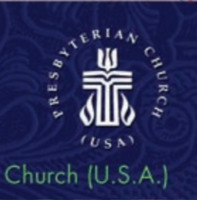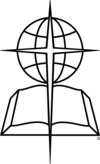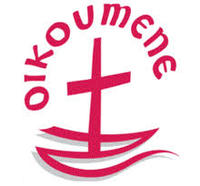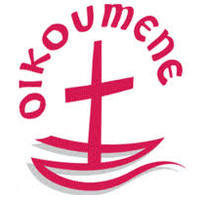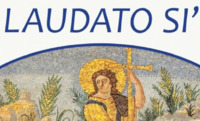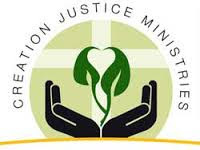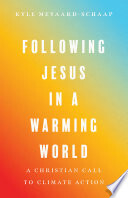Search
79 items
-
Profile: John B. Cobb Jr.
John B. Cobb is an American theologian working in ecology and creation care. The prolific author of more than fifty books has argued inside the church and the academy for faith inspired environmental action. He began writing on faith and environmentalism in the 1970s and has remained a prominent activist and theologian through his life. In 2014, Cobb’s accomplishments were celebrated when he was inducted into the American Academy of Arts and Sciences.
Cobb and his students put together an early Ecotheology book list, current through 1991. Cobb’s speeches and works can be found online, and his books can be found at many major retailers and your favorite independent bookstore. -
Justice for Each Generation
Justice for Each Generation started with the landmark case, Juliana v. U.S. Twenty-one youth had filed a lawsuit against the United States government for its role in causing climate change and violating their right to life, liberty, and property, while also failing to protect essential public resources. They are calling for sermons from youth and adults of all faiths as a collective statement that sends a signal to the rest of society. -
Five Ways to Prevent Air Pollution
Evangelical Environmental Network Moms (EEN Moms) provide this information sheet, urging individuals to take action in areas that might seem overwhelming and/or too difficult to change. This message by EEN Moms focuses on air pollution. Small action/steps taken by everyone can add up to make significant changes to the quality of air for our planet. -
Leadership Meeting Guide – Breathe Free and Easy
Evangelical Environmental Network MOMS strive for pollution free air for everyone around the globe. They believe that clean air is a fundamental gift from God (Genesis 1). Even in the United States, there are still people fighting for clean air. This resource provides a video and discussion questions about how mothers can make a difference and advocate for healthy, clean air for all. The guide can be downloaded for easier use at meetings as well. -
Season of Creation Week 2: Climate Change: A Challenge, Our Concern
For each week of the Season of Creation, the World Council of Churches offers a resource for celebrating creation. The second week of the Season of Creation is focused on climate change and the challenge of responding to Pope Francis’ call to care for creation. This document contains a hymn, a call to repentance, a responsive reflection, and an intercession. -
Earth Day statement from ELCA presiding bishop
The Reverend Elizabeth A. Eaton, Presiding Bishop of the Evangelical Lutheran Church in America (ELCA), issued an Earth Day statement on behalf of the ELCA. A salient excerpt from the statement is shown below:
"The effects of the warming climate are felt in nearly every corner of the globe. These include increased migration, food insecurity due to changing agricultural landscapes, national security issues and health problems. As bad as it is for all creation, the most vulnerable people around the world are suffering the most. Yet they have contributed the least and, as noted in the United Nation's 2030 Agenda for Sustainable Development,[iii] are ill equipped to adapt to or mitigate the effects of a changing climate to build resilient communities." -
PC(USA) Collaborative Agenda on Environmental Stewardship
Chief executives of the six churches of the Presbyterian Church (U.S.A.) provide their rationale for creating the Collaborative Agenda on Environmental Stewardship:
"Noting the deep concern about urgent environmental challenges expressed by many commissioners at the 221st General Assembly (2014), chief executives of the six agencies of the Presbyterian Church (U.S.A.) appointed a working group to develop a joint response. The group consisting of at least one staff member per agency—was asked to craft a positive statement of what each agency, and the agencies together, have done and plan to do regarding environmental stewardship. This document is designed to call attention to ongoing efforts by the PC(USA) to confront the underlying causes of climate change, and to resources available through the six agencies to congregations, mid councils, and other mission and ministry groups wishing to join in the effort. The working group, meeting together regularly over a period of nine months, has produced the following document— 'Collaborative Agenda on Environmental Stewardship.' It has been reviewed by each of the agency boards, which have each endorsed the document as a whole and recommended that the General Assembly also endorse it as a helpful resource to the whole denomination. This effort is particularly noteworthy as it is unusual for an item of business to come to the assembly from a collaboration of all six agencies." -
Blessed Tomorrow - Caring for Creation Today - Commitment to Act on Climate Change
The Presbyterian Church acknowledges that burning fossil fuels can cause irreparable damage to the Earth and to humans, with a disproportionate impact on the poor and vulnerable, and advocate instead for cleaner energy sources. They emphasize that care for creation is not a political, economic, or scientific issue, but rather a moral responsibility laid before us by God. For this reason, they are partnering with Blessed Tomorrow, to facilitate the creation of new tools and guides that will help to create a more sustainable future. -
The Power to Change
The 218th General Assembly of the Presbyterian Church U.S.A. (PCUSA) has put forth this resolution on energy and climate change as a resource for both individuals and entire congregations. Topics at the forefront of the report include: global warming, eco-justice norms, energy guidelines, non-renewable energy sources, and alternative and renewable energy sources. The final section includes resources for education, action and advocacy. -
A Shared Quaker Statement: Facing the Challenge of Climate Change
This statement calls for leaders to make sound decisions with regard to climate change, and for all people to cherish the Earth for future generations. The following introductory section highlights the sense of urgency:
"As Quakers, we understand anthropogenic climate change (climate change due to human activities) to be a symptom of a greater challenge: how to live sustainable and justly on this Earth.
We recognize that the current rise of greenhouse gas emissions is leading to an unprecedented rate of increase in global average surface temperature of extreme detriment to the Earth’s ecosystems and species, including human beings.
We recognize that catastrophic global climate change is not inevitable if we choose to act urgently." -
A Quaker Response to the Crisis of Climate Change
A Quaker Response to the Crisis of Climate Change discusses how climate change and consumer waste negatively impacts disadvantage populations the most. The first two paragraphs of the introduction are stated below:
"The crisis of global climate change represents a supreme test of humanity’s collective wisdom and courage. Our immoderate use of the Earth’s resources violates the entire biosphere, threatening the lives of millions of people and the habitats of thousands of species. Many of the poorest people are already suffering a changed climate; they are
asking us all to act.
How has humanity produced this crisis? Our faith response is that prevailing social values have obscured what it means to live authentically on this Earth. In rich European countries we consume more than we need within an economic system that divides us as a society; in much that we do, we cause harm to the planet and each other without enriching our lives." -
On Global Warming
This first half of this message posted on the Southern Baptist Convention website provides some key time frames with regard to ongoing climate issues. The second half focuses on responses from/actions taken by Southern Baptists. An additional overarching theme is humans responsibility for care for creation and, in particular, the poor. -
The United Church of Christ and Climate Change
This article from the United Church of Christ points to specified time periods/salient highlights of their responses to various environmental issues over the past 15 years. The United Church of Christ recognizes climate and energy issues as moral and ethical issues that affect everyone. However they also acknowledge that it most negatively impacts those with the least access to resources. -
A Resolution on Climate Change 2007 GS26
In 2007, The United Church of Christ put forth a resolution on climate change. They acknowledge the negative impact of global warming and urge governing bodies to support measures that reduce green house gas emissions. The following is an excerpt from the 2007 resolution on climate change:
"WHEREAS, the predicted impact of global warming will have a disproportionate impact on those living in poverty, least developed countries, the elderly and children and those least responsible for the emissions of greenhouse gases;
THEREFORE, BE IT RESOLVED that the Twenty-sixth General Synod of the United Church of Christ admits Christian complicity in the damage human beings have caused to the earth's climate system and other planetary life systems, and urges recommitment to the Christian vocation of responsible stewardship of God's creation, and expresses profound concern for the pending environmental, economic, and social tragedies threatened by global warming, to creation, human communities and traditional sacred spaces;
WE FURTHER RESOLVE that the Twenty-sixth General Synod of the United Church of Christ urges the United States Government to respond to global warming with great urgency and firm leadership by supporting mandatory measures that reduce the absolute amount of green house gas emissions, and in particular emissions of carbon dioxide, to levels recommended by nationally and internationally recognized and respected scientific bodies;" -
World Council of Churches Endorses Fossil Fuel Divestment
This message from the World Council of Churches (WCC) discuss their endorsement of fossil fuel divestment (2014 Geneva, Switzerland). WCC is one of a growing number of religious groups to support the fossil fuel divestment movement. The introduction is stated below:
"The Central Committee of the World Council of Churches (WCC), a fellowship of over 300 churches which represent some 590 million people in 150 countries, endorsed fossil fuel divestment this week, agreeing to phase out its own holdings and encourage its members to do the same." -
Care for Creation and Climate Justice
The World Council of Churches provides a brief description of their stance on care for creation and climate justice on their website. The following is an introductory statement, urging individuals forgo over-consumption and greed:
"The present world development model is threatening the lives and livelihoods of many, especially among the world's poorest people, and destroying biodiversity. The ecumenical vision is to overcome this model based on over-consumption and greed." -
Climate Change
The World Council of Churches calls individuals to modify their consumer lifestyle for the greater good - to improve shared environmental conditions for all and with less negative impact among the poor. This excerpt provides a sense of urgency to act to reverse the threat of climate change:
"The urgency of the threat of climate change requires our generation to take immediate action and go beyond simple declarations and statements. New alternative models of life are called for. We challenge all people to move towards a style of life that derives its quality from the attentive enjoyment of nature and human relationships, from mutual care, dependence, trust and solidarity instead of the illusions of individual autonomy and material wealth, from spirituality and feelings of community, connectedness and intimacy instead of one-dimensional self-centredness. We draw strength from insights gained from the rich, community- oriented and simple lifestyles of indigenous and other marginalized communities. We are conscious of the significant contribution these communities, with their low carbon economies, deliver to the stabilization of the climate. We recommend the creation of 'just, participatory, sustainable and sustaining communities' for mutual support and call upon the churches and authorities to join them on this journey with reflection and practical support." -
Laudato Si' Adds Catholic Voice to Diverse spectrum of Religious Creation Care Views
Here are some links to the encyclical and related educational materials and statements that have been developed by different religious communities, including a letter of support from over 400 Rabbis, and a new Islamic statement on the environment:
Laudato Si’: Praise Be To You: On Care for Our Common Home: (html)
Laudato Si’ study guide from the US Conference of Catholic Bishops: (pdf)
National Catholic Reporter Reader’s Guide to Laudato Si: (pdf)
The Shalom Center with its history of ecological practices: (url)
Announcement of the Rabbinic Letter on the Climate Crisis: (url)
Islamic Declaration on Global Climate Change: (url)
United Methodist Bishops Pastoral Letter: God’s Renewed Creation: Call to Hope and Action: (url)
Lutheran Study Guide to Pope Francis’ Letter on Climate Change: (pdf)
Evangelical Declaration on the Care of Creation: (url)
National Association of Evangelicals 2015 Call to Action on Creation Care: (url)
A Buddhist Declaration on Climate Change: (url)
Buddhist Climate Change Statement to World Leaders 2015: (url)
Black Church Climate Statement: (url)
-
Christian Communities Respond to Trump’s Executive Order
President Trump signed an executive order on March 28 directing the EPA to review the Clean Power Plan. This executive order has the possibility to dismantle important climate change protections and fails to offer an alternative plan to protect our air quality and climate stability. Many Christian communities have responded to this action and made official statements on their thoughts and about protecting the Earth. -
Fasting for Climate Justice
Fasting for Climate Justice is a resource from Global Catholic Climate Movement (GCCM ) on the practice of fasting for climate action through two initiatives: meatless Fridays and monthly fasting. The GCCM encourages abstinence from meat on Fridays as a way to reduce one’s negative impact on global climate change. The GCCM also promotes fasting for the climate which takes place the first day of each month. -
Sikh Statement on Climate Change
EcoSikh has created the groundwork for a Sikh environmental theological foundation, and the inspiration to connect Gurbani (hymns in the central text of the Sikhs) to the state of the environment today. This is the first of its kind from the Sikh community and it outlines new actions Sikhs can take to strengthen their connection to their faith through environmentalism. The following quote is an excerpt from the statement:
“You, Yourself created the Universe, and You are pleased…You, Yourself the bumblebee, flower, fruit and the tree. You, Yourself the water, desert, ocean and the pond. You, Yourself are the big fish, tortoise and the Cause of causes.” -
Evangelical Environmental Network: Trump Budget would harm National Parks and the Protection of God’s Other Creatures
The president of the Evangelical Environmental Network, Rev. Mitch Hescox, made a statement saying that the budget proposed by the Trump administration is a “devils bargain,” which would harm national parks and the protection of God’s creatures.
“The Trump Administration’s budget, if implemented, would be an abdication of our stewardship of our public lands, which are entrusted to each generation to pass on to their children.” -
Earth Day Action Toolkit
"Every April 22nd, stakeholders of all backgrounds come together to advance sustainability and climate action in commemoration of Earth Day. Our world needs transformation. It’s time for the people of the world to hold governments and the private sector accountable for their role in our environmental crisis while also calling for bold, creative, and innovative solutions. This will require action at all levels, from business and investment to city and national government.
That’s where you come in: as an individual, you yield real power for change through your influence as a consumer, a voter, and a community member.
Don’t underestimate your power. When your voice and actions are united with millions of others around the world, we can create an inclusive and impactful movement that is impossible to ignore.
Throughout April, we commemorate Earth Month with marches, rallies, volunteer events, and more. United together, we’ll drive a year of energy, enthusiasm, and commitment to a sustainable and equitable future for our planet." -
Faith groups increasingly join fight against climate change
There are many faith groups that help with climate disasters. In the article, places like Louisiana, and how places that have been very important to people could soon disappear. It talks about how faith leaders and environmentalists have been working together. -
Following Jesus in a Warming World: A Christian Call to Climate Action
"Have you ever looked at the effects of climate change and the apathy of so many around you and wondered, 'What are we missing here?'
Climate activist Kyle Meyaard-Schaap understands this feeling from personal experience. But in his years of speaking to and equipping Christians to work for climate action, he's seen the trend begin to shift. More and more young Christians are waking up to the realities of climate change. They want to help, but they're not sure how.
Through stories from the field, theological and scriptural exploration, and practical advice, Meyaard-Schaap offers hope to Christians paralyzed by the scale of the crisis, helping us turn our paralysis into meaningful action. Following Jesus in a Warming World is a field guide for Christian climate action—one grounded not in a sense of guilt or drudgery, but in the joy of caring for creation."

